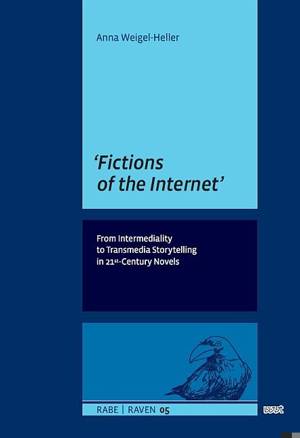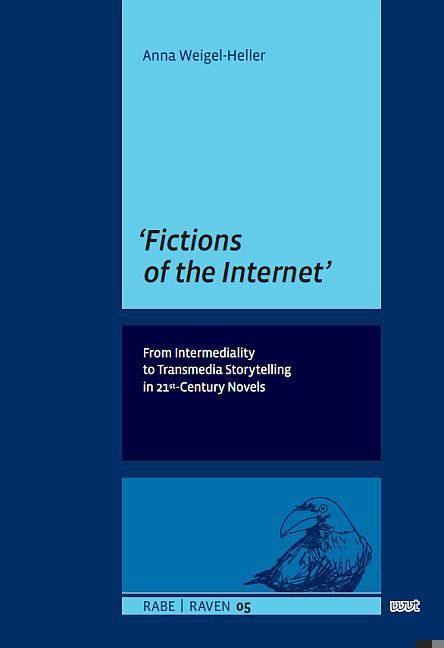
- Afhalen na 1 uur in een winkel met voorraad
- Gratis thuislevering in België vanaf € 30
- Ruim aanbod met 7 miljoen producten
- Afhalen na 1 uur in een winkel met voorraad
- Gratis thuislevering in België vanaf € 30
- Ruim aanbod met 7 miljoen producten
Zoeken
'Fictions of the Internet'
From Intermediality to Transmedia Storytelling in 21st-Century Novels
Anna Weigel-Heller
€ 37,95
+ 75 punten
Omschrijving
The Internet has not only altered the way we live, communicate, and think, it has also breathed new life into the contemporary book market. More and more 21st-century writers invoke new media in their literary texts and explore the limits of the novel as a medium by using intermedial and transmedial storytelling techniques. Owing to the rapid changes in the media landscape and the book market, new literary experiments and genres in printed, electronic, and enhanced formats are cropping up nearly every day.
This interdisciplinary study on 'fictions of the Internet' gives a broad and extensive overview of the manifold tendencies in contemporary writing that are influenced by the Internet and new media on a thematic, structural, and transmedial level. It combines text-centered with transgeneric, transmedial, and cultural-oriented approaches, and focuses on three main concepts-namely, 'intermediality', 'transmedia storytelling', and 'genre/generic change'. Close readings of texts by Dave Eggers, Jarett Kobek, Lucy Kellaway, Nick Hornby, Jeffery Deaver, Marisha Pessl, and Andreas Winkelmann show that contemporary writers do not simply add intermedial references to their stories, but instead use media for a variety of storytelling purposes. The study argues that contemporary novels have creatively responded to the changing media landscape with regard to their content, form, materiality, technological support, and interactive and participatory features, and proposes new generic terms for literary innovations that are related to the Internet and new media.
This interdisciplinary study on 'fictions of the Internet' gives a broad and extensive overview of the manifold tendencies in contemporary writing that are influenced by the Internet and new media on a thematic, structural, and transmedial level. It combines text-centered with transgeneric, transmedial, and cultural-oriented approaches, and focuses on three main concepts-namely, 'intermediality', 'transmedia storytelling', and 'genre/generic change'. Close readings of texts by Dave Eggers, Jarett Kobek, Lucy Kellaway, Nick Hornby, Jeffery Deaver, Marisha Pessl, and Andreas Winkelmann show that contemporary writers do not simply add intermedial references to their stories, but instead use media for a variety of storytelling purposes. The study argues that contemporary novels have creatively responded to the changing media landscape with regard to their content, form, materiality, technological support, and interactive and participatory features, and proposes new generic terms for literary innovations that are related to the Internet and new media.
Specificaties
Betrokkenen
- Auteur(s):
- Uitgeverij:
Inhoud
- Aantal bladzijden:
- 300
- Taal:
- Engels
- Reeks:
- Reeksnummer:
- nr. 5
Eigenschappen
- Productcode (EAN):
- 9783868217827
- Uitvoering:
- Paperback
- Afmetingen:
- 155 mm x 225 mm
- Gewicht:
- 545 g

Alleen bij Standaard Boekhandel
+ 75 punten op je klantenkaart van Standaard Boekhandel
Beoordelingen
We publiceren alleen reviews die voldoen aan de voorwaarden voor reviews. Bekijk onze voorwaarden voor reviews.











